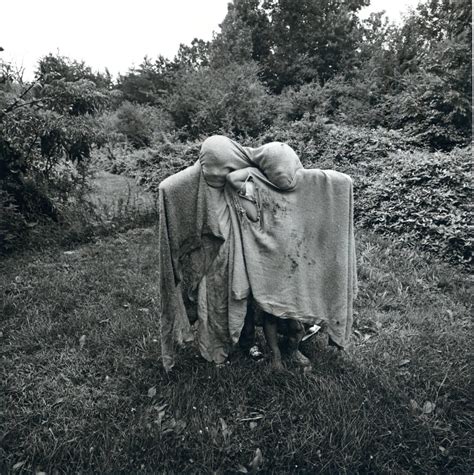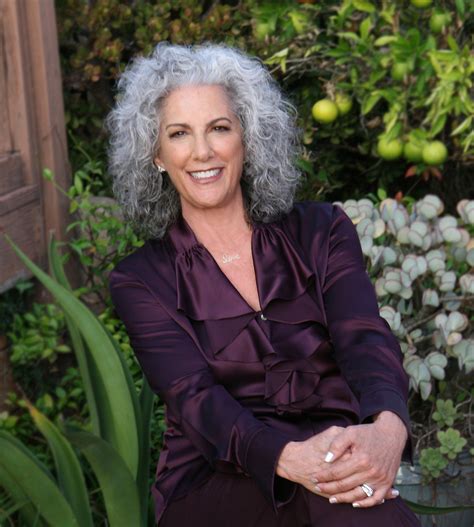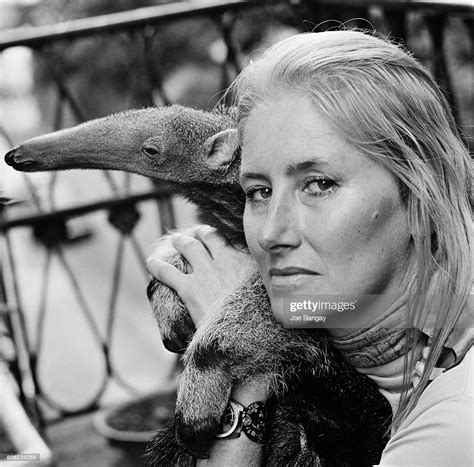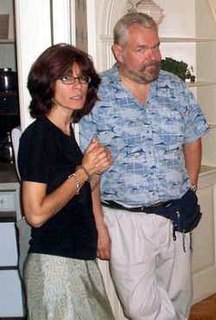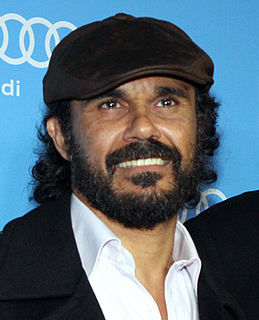A Quote by Emmet Gowin
It might take us a lifetime to find out what it is we need to say. Most of us fall into where our feelings are headed while we're quite young. But the beauty of all this uncertainty would be that in the process of exhausting all the possibilities, we might actually stumble unconsciously into the recognition of something that's useful to us, that speaks to a deep need within ourselves. At the same time, I like to think that in order for any of us to really do anything new, we can't know exactly what it is we are doing.
Quote Topics
Actually
Any
Anything
Beauty
Deep
Doing
Exactly
Exactly What
Exhausting
Fall
Feelings
Find
Headed
Know
Lifetime
Like
Might
Most
Need
New
Order
Our
Ourselves
Out
Possibilities
Process
Quite
Really
Recognition
Same
Same Time
Say
Something
Speaks
Stumble
Take
Think
Time
Uncertainty
Us
Useful
While
Within
Would
Would Be
Young
Related Quotes
[Grace] is given not to make us something other than ourselves but to make us radically ourselves. Grace is given not to implant in us a foreign wisdom but to make us alive to the wisdom that was born with us in our mother?s womb. Grace is given not to lead us into another identity but to reconnect us to the beauty of our deepest identity. And grace is given not that we might find some exterior source of strength but that we might be established again in the deep inner security of our being and in learning to lose ourselves in love for one another to truly find ourselves.
We all have within us a deep sense of what we need, and what is right and true for us. To access this we need to pay attention to our feelings and our intuition. We need to learn to listen deeply to ourselves and to trust what we hear. And we need to risk acting on what we feel to be true. Even if we make mistakes, we must do this in order to learn and grow.
Someone with whom we have a lifetime's worth of lessons to learn is someone whose presence in our lives forces us to grow...those who consciously or unconsciously challenge our fearful positions. They show us our walls. Our walls are our wounds--the places where we feel we can't love any more, can't connect any more deeply, can't forgive past a certain point. We are in each other's lives in order to help us see where we most need healing, and in order to help us heal.
Most of us are searching-consciously or unconsciously- for a degree of internal balance and harmony between ourselves and the outside world, and if we happen to become aware-like Stravinsky- of a volcano within us, we will compensate by urging restraint. By that same token, someone who bore a glacier within them might urge passionate abandon. The danger is, as Bergman points out, that a glacial personality in need of passionate abandon may read Stravinsky and apply restraint instead.
What makes us leave what we love best? What is it inside us that keeps erasing itself When we need it most, That sends us into uncertainty for its own sake And holds us flush there until we begin to love it And have to begin again? What is it within our own lives we decline to live Whenever we find it, making our days unendurable, And nights almost visionless? I still don't know yet, but I do it.
After a few (or many) bad relationships, its so easy to shut down, give up, and stop believing that the right person is out there for us. Our hearts yearn to fall in love, but our minds insist its not possible, and we enter into a tug-of-war with ourselves. Its as if one part of us is screaming, Yes! I deserve a great relationship! while another part insists, Ill never find him or her. When our beliefs contradict our desires, we experience an inner conflict that not only paralyzes us, but can actually prevent us from recognizing the possibilities for love that exist all around us.
Many of us have a tendency to deny any negative feelings. We judge them as "bad" or "unenlightened" when, in fact, they are our stepping stone to enlightenment. Our so-called negative feelings or attitudes are really parts of ourselves that need recognition, love, and healing. Not only is it safe and healthy to acknowledge and accept all of our feelings and beliefs, it is necessary, if we are to get in touch with the fears and pockets of blocked energy that are holding us back from what we want.
It is our genetic nature as a species to believe as young children that our parents and elders are right. We watch them to see what's what. Later on we can judge for ourselves and rebel if need be, but when we're just months old, or a year or two, and a parent looks at us with impatience, or disgust, or disdain, or just leaves us there to cry and doesn't answer us even though we're longing to be embraced and nurtured, we assume that something must be wrong with us. Unfortunately, at that age it's impossible to think there might be something wrong with them.
Darkness might seem to obscure what's happening, but I find it's always pretty revelatory: it brings out the awe in us, the fear in us, the excitement of exploring the hidden or unknown. It seems to conceal, but it really shines a light on what we want, what we need, and what we'll do to get it. Especially when we think no one can see us.
It is a horrible idea that there is somebody who owns us, who makes us, who supervises us - waking and sleeping - who knows our thoughts, who can convict us of thought crime, thought crime, just for what we think, who can judge us while we sleep for things that might occur to us in our dreams, who can create us sick, as apparently we are - and then order us, on pain of eternal torture to be well again.
To demand this, to wish this to be true is to wish to live as an abject slave.
But the voice goes on, calling us, beckoning us, luring us to think that there might be such a thing as justice, as the world being put to rights, even though we find it so elusive. We're like moths trying to fly to the moon. We all know there's something called justice, but we can't quite get to it.
I'm not really sure why so much people still listen us. I think we live in an era when people get attached to stuff, and it means something. Then I think a lot of people heard about it over the years - like somebody's older brother might tell them, you know, because we're from his era, and he might be like, "You need to listen to this; this is what it's all about," you know what I mean? I don't know, man, it's hard to say. But it makes us feel special.
Although our moral conscience is a part of our consciousness, we do not feel ourselves on an equality with it. In this voice which makes itself heard only to give us orders and establish prohibitions, we cannot recognize our own voices; the very tone in which it speaks to us warns us that it expresses something within us that is not of ourselves.
